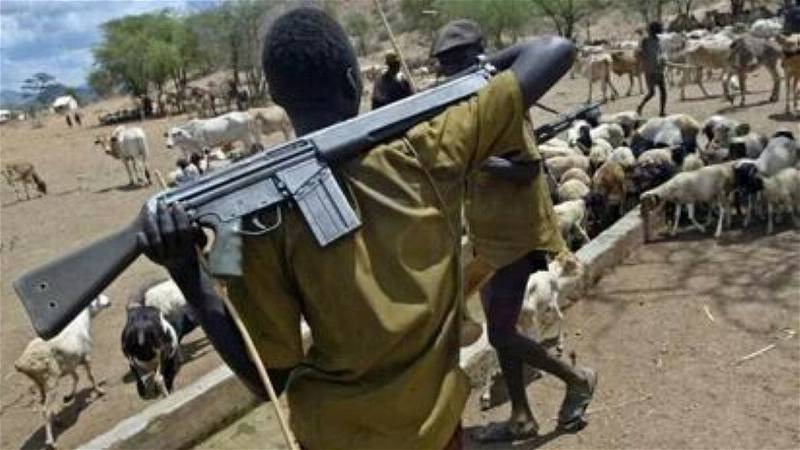
Gunmen suspected to be Fulani herdsmen were said to have abducted at least 11 passengers at the Amechi-Idodo axis of the Enugu-Abakaliki federal highway in South-East Nigeria.
The Tuesday, 16th July incident reportedly happened about four poles apart from two Military checkpoints immediately after crossing Ebonyi/Enugu boundary in Idodo, Nkanu East local government area of Enugu State.
Meanwhile the victims, it was gathered, are students from tertiary institutions in Ebonyi State, who were traveling in a commercial bus from Awka, Anambra State to Abakaliki, the Ebonyi State capital.
The gunmen, who were said to be herders intercepted the bus at the Amechi-Idodo area before the Enugu/Ebonyi boundary.
A relative of one of the victims, who identified himself Ogene Festus, told reporters that the kidnappers have contacted the family, demanding a ransom of N30million.
“From where do we get such kind of money? What baffled me is how these criminals will effectively carry out kidnapping in a stretch of less than 1km with seven solid checkpoints. Four military checkpoints and three police checkpoints. Kidnapping on the road increased since Governor Peter Mbah, who hails from Owoh, a neighbouring community to Idodo increased road blocks,” he said.
He added: “From 6pm you see more than 20 security checkpoints from Eke Obinagu to Enugu/Ebonyi boundary, stretch of road that is less than 4km. Yet despite these checkpoints there was no week since May we have not recorded kidnapping of motorists.”
Joshua Ukandu, the Ebonyi State Police Public Relations Officer, stated that the Enugu State Police Command was actively working to address the situation.
Ukandu added that the Ebonyi State Commissioner of Police, Augustina Ogbodo, was collaborating with her Enugu counterpart, Kanayo Uzuegbu, to combat the surge in kidnappings along this stretch of the highway.
In response to the growing insecurity, Enugu Governor, Peter Mbah recently directed security agencies to intensify efforts to eradicate the criminal activities plaguing the area.
The Fulani people are believed to be the largest semi-nomadic group globally, found across West and Central Africa. In Nigeria, some continue to live as semi-nomadic herders, while others have moved to cities. Unlike city dwellers, the nomadic groups spend most of their lives in the bush and are often involved in clashes with farming communities, and also engage in kidnapping for ransom. They herd their animals across vast areas, frequently clashing with local farmers.
The conflict between Fulani herdsmen and farmers in Nigeria has been a longstanding issue, resulting in violence and loss of lives.
The herders now bear sophisticated weapons and use them to terrorize many parts of the country, with security operatives ignoring many of the attacks for allegedly not getting orders to go after the criminals.
Several brutal attacks happened under former President Muhammadu Buhari, who was born to a Fulani family on 17 December 1942, in Daura, a town in Katsina State, Nigeria.
The continuous unprovoked attacks triggered resistance in South-East region, inhabited by Igbo people and South-West region, inhabited by the Yoruba people.
A Yoruba activist and philanthropist, Chief Dr Sunday Adeyemo, aka Sunday Igboho, demanded end to the attacks that have cost lives of thousands. He asked the Fulani people to vacate all the forests in South-West.
He is currently agitating for the freedom of the South West.
As the Akoni Oodua of Yorubaland, he is known for fighting for the rights of the Yorubas and advocating for the Oduduwa republic.
KOIKI Media bringing the world 🌎 closer to your door step
